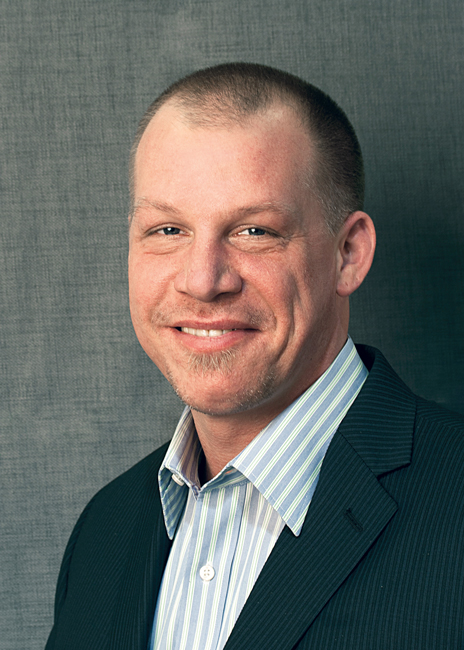Justin Freeman, Bargreen Ellingson
 Justin Freeman is something of a foodservice industry lifer. At the age of 12 he began washing dishes at a local independent restaurant and went on to build a diverse career from there. Freeman tried college but soon realized it was not for him. Rather, he humbly feeds off the face-to-face interactions with his colleagues and customers alike.
Justin Freeman is something of a foodservice industry lifer. At the age of 12 he began washing dishes at a local independent restaurant and went on to build a diverse career from there. Freeman tried college but soon realized it was not for him. Rather, he humbly feeds off the face-to-face interactions with his colleagues and customers alike.
Over the course of his career, Freeman has done a little bit of everything, from specifying smallwares packages to design build to playing the role of general contractor on job sites. His customer base is as diverse as his skillset. In his sales role he works with independent restaurants, schools, hospitals and even jails. Makes no difference what segment Freeman is serving, though, his approach remains the same: laser-focused on the customer.
At the end of the day, Freeman is a people person, grateful for his lot in life. “The people I work with have my back no matter what,” he says. “I’ve worked with some fantastic people over the years and I can’t say enough about the people at Bargreen Ellingson.”
Q: How has COVID-19 impacted the way you work with your customers?
A: I have the benefit of living in an area that’s less populated than other parts of the country. We went into lockdown for three to four weeks in April 2020. And then May 1, 2020, the governor reopened the state partially, and that allowed me to get back in the field and see all of my customers. And I have been doing that ever since. In the valley I work in we lost maybe three customers. Everyone else has gotten through it and the rebound has been amazing. Since the first of the year, I’ve seen customers really loosen the purse strings and they expect this summer to be great.
Q: There are so many options out there, how do you find the right solution for the right application?
A: There are so many variables. It depends on the customer, the amount of business they do and how they intend to use the equipment. So, it comes down to having a good idea of what my customer intends to accomplish and understanding where they are financially. I just try to take care of people, really. I intend to be here for a long time. I want my customers to like me, respect me and trust me 10 or 15 years from now. To have that healthy relationship, I need to take care of them and show I am not concerned about simply making one sale. All of that comes into play.
Q: You worked as an operator for a long time. How does that impact your ability to work with your customers?
A: It helps me be in a kitchen comfortably. And the same applies to the dining room and the bar. I know where I need to stand. I know how to address chefs, cooks, prep cooks, bartenders, waitstaff and even general managers. I have held those positions and know how to talk to them. If I am not doing something in a kitchen, for example, I know I am in someone’s way. I also built cabinetry and furniture before, so I understand dimensions and layout, too. That past experience really lends itself to taking care of the customer. It’s not just the owner that’s my customer. It’s all of the employees, too. When I come into a restaurant — and I am in and out of 30 a day window — I say hello to all of them and say goodbye to all of them. Respect goes a long way.



